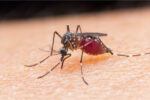 Salmonella Recalls are Everywhere. What is it, and What is the Risk to You?
Salmonella Recalls are Everywhere. What is it, and What is the Risk to You?
Salmonella is a type of bacteria that can make people very sick. You can’t see it, smell it, or even taste it. But if it gets into your body, it can cause an illness called salmonellosis, which is a serious and sometimes deadly infection.
The latest round of salmonella-linked recalls began in May with whole cucumbers. Then in early June, the U.S. Food and Drug Administration (FDA) recalled some tomatoes labeled as “highest risk,” followed closely by a recall of 1.7 Million dozen eggs in the United States. All recalls were because the foods were possibly contaminated with salmonella. It’s a sobering reminder how important our government food monitoring organizations are to the health and safety of all Americans.
What are salmonella symptoms?
People usually feel sick anywhere between six to 72 hours after eating food with salmonella. The most common symptoms include:
- Stomach cramps
- Diarrhea
- Fever
- Headache
- Vomiting
These symptoms can last four to seven days. While most people get better at home with proper rest and hydration, some people — like young children, older adults, pregnant women, or people with weak immune systems — may need to see a doctor.
What foods can carry salmonella?
Salmonella can be found in raw or undercooked:
- Eggs
- Chicken and other meats
- Fruits and vegetables (especially if not washed properly)
- Unpasteurized milk or juice
Even healthy foods can carry germs, which is why careful food handling is so important.
Other ways you can get salmonella
While food is the most common carrier of salmonella, it can also spread in other ways, including:
- Touching animals like turtles, lizards, snakes, or baby chicks and not washing your hands
- Cleaning up pet stool, especially from sick animals
- Drinking water from lakes, rivers, or ponds
- Being around someone who’s sick and not washing your hands afterward
How can you stay safe?
To help protect yourself and your family:
- Wash hands with soap and water before and after handling food
- Cook meat and eggs all the way through
- Wash fruits and vegetables well
- Keep raw and cooked foods separate
- Clean kitchen counters and tools after use
Make sure to always wash your hands after touching animals, using the bathroom, or before eating.
When to see a doctor
If you continue to feel sick after a few days and have severe symptoms — like a high fever, blood in your stool, or persistent vomiting — you should see your doctor.
In some cases, if the infection spreads or becomes serious, your doctor may send you to an infectious disease specialist.
Salmonella can be dangerous, but most people get better with rest and fluids. Make sure you stay safe by washing your hands, cooking food properly, and following food recalls.
—
Photo Credit: Sea Wave / Shutterstock.com






